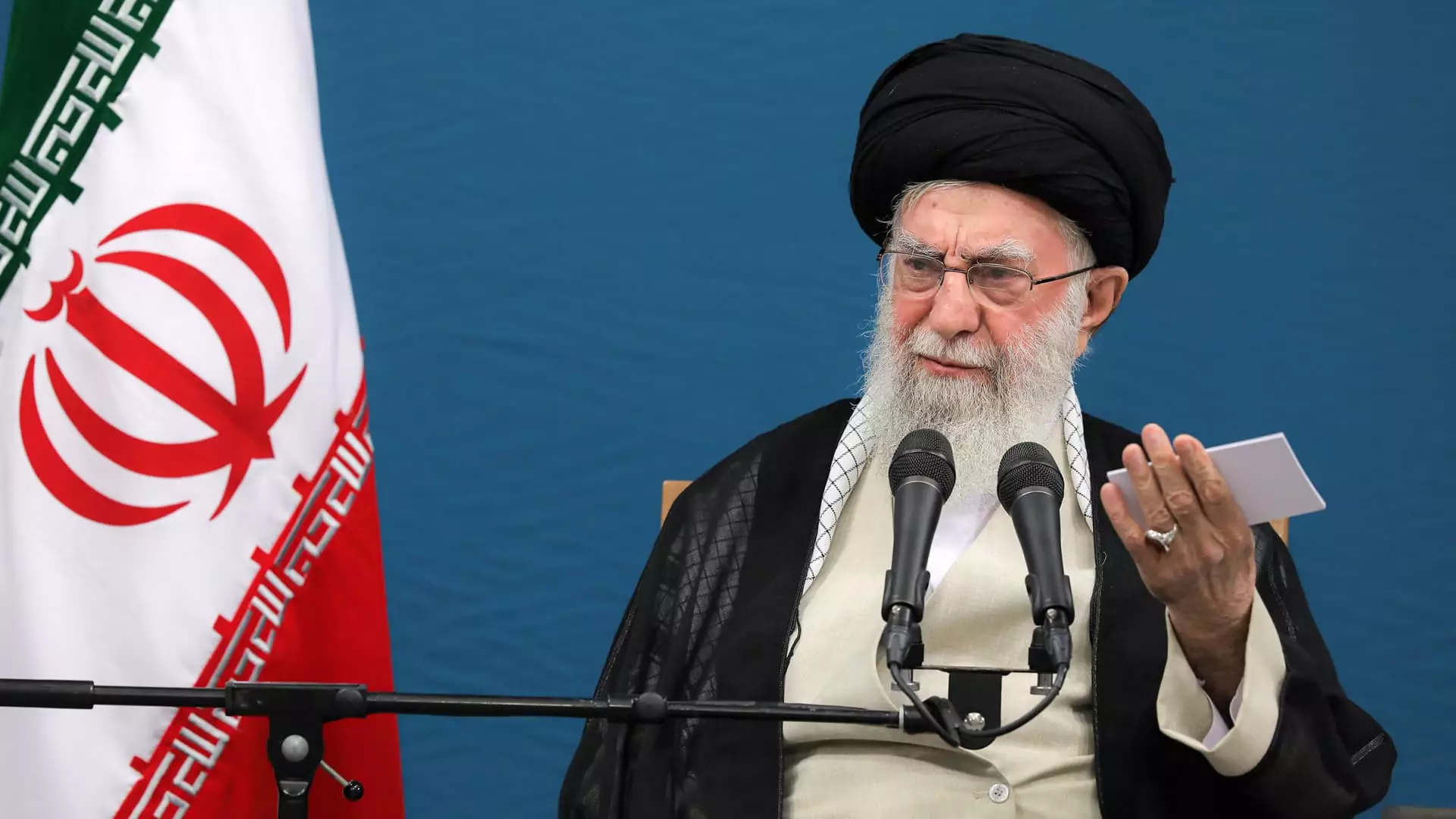The ongoing conflict in Ukraine has catalyzed various forms of international collaboration and tension, particularly in terms of military support. Recent intelligence from the United States suggests that Iran may have provided short-range ballistic missiles to Russia, with serious implications for the geopolitical landscape. This revelation underscores a worrying trend that goes beyond mere regional instability; it points to a potential alliance that could reshape military dynamics on a global scale.
The U.S. has conveyed its suspicions to allied nations, recognizing a troubling partnership between Iran and Russia. Although specifics concerning the number of missiles transferred or the timelines of such exchanges remain unconfirmed, this intelligence finding brings to light the extent of Iran’s military support for Russia in its ongoing campaign against Ukraine. According to U.S. officials, this connection has dire consequences, marking a significant escalation in the kind of assistance Tehran provides to Moscow. National Security Council spokesman Sean Savett emphasized that any transfer amplifies not just Russian military aggression but also poses a direct threat to civilian lives in Ukraine.
Iran has persistently denied any involvement in arms supplies to Russia, framing its policies as humanitarian in nature. The Iranian mission to the United Nations released statements declaring that military assistance can lead to civilian casualties and hinder prospects for peace negotiations. This stance, however, appears increasingly hollow amid accumulated intelligence pointing towards military cooperation between these two allies.
An Iranian-Russian partnership poses serious risks for European security. As nations contend with the fallout of the Ukraine war, alliances and military strategies are adjusting rapidly. The potential for Iran to extend its influence through missile supplies not only amplifies the immediate conflict but also destabilizes broader regional dynamics. Such developments can lead to increased arms proliferation, creating a complex web of tension that undoubtedly impacts Europe.
Moreover, the partnership threatens to bolster Moscow’s defenses, allowing Russia to continue its aggression with renewed vigor. The coinciding failure of Ukrainian advances—partly attributed to defensive strategies supported by Iranian military hardware—raises questions about the efficacy of international sanctions and diplomatic efforts aimed at curbing military collaboration between rogue states.
The situation is further complicated by the involvement of other powers such as North Korea and China. CIA Director William Burns has identified a growing defense nexus among Russia, Iran, North Korea, and China, as each of these countries strengthens its military ties, posing a significant challenge to the Western-aligned nations. North Korea’s involvement, particularly in supplying ammunitions and missiles, amplifies the challenges faced by Ukraine and Western allies in deterring Russian aggression.
China’s role has been somewhat restrained compared to Iran and North Korea, yet its surge in technological support to Russia, such as machine tools and microelectronics, cannot be overlooked. These contributions enable Russia to ramp up its own military production capabilities, significantly impacting the trajectory of the conflict.
The United States and its allies must take proactive measures to mitigate the evolving threat stemming from Iranian support to Russia. This includes not only intensified monitoring of arms transactions but also a coordinated global response to restrict military supplies. By issuing guidance to private sector entities against inadvertently facilitating Iranian missile development, the U.S. aims to create a barrier against the flow of military technology. Such steps are essential, though the real efficacy lies in collaborative international action.
Conversations about continuing military aid to Ukraine also underline the urgency of addressing these emerging threats. As President Joe Biden prepares to meet with key allies, including British Prime Minister Keir Starmer, discussions around bolstering Ukraine’s defenses will likely dominate the agenda. This cooperation serves as a hallmark of Western unity in the face of increasing authoritarianism manifesting through military aggression.
As the landscape of international relations shifts in response to the conflict in Ukraine, the implications of Iranian military support for Russia extend far beyond regional boundaries. Such actions threaten to destabilize global security and assert a reconfiguration of alliances that could have lasting consequences. The international community must respond with vigilance, ensuring that measures are in place to counteract these threats while continuing to support principles of sovereignty and humanitarian concerns in ongoing disputes. The world watches closely as events unfold, knowing that the stakes have never been higher.


Leave a Reply